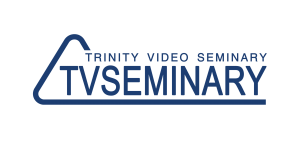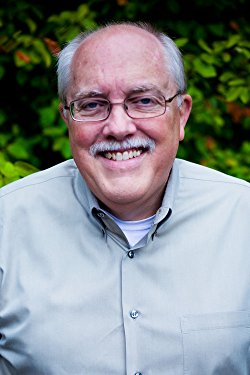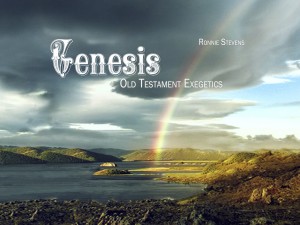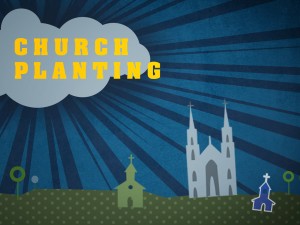Introduction to Pastoral Care and Counseling
Course Description
An introduction to the principles, and techniques involved in the pastoral ministry of care and counseling. The course emphasizes basic counseling skills and ability to relate to others. Biblical, theological, and ethical concerns in pastoral care ministry are discussed and an overview of common counseling concerns is presented.
Course Objectives
This course will help students:
- to approach ministry counseling issues from a perspective of soul care, in order to help God’s people grow in Christlikeness as they deal with life’s problems and decisions;
- gain knowledge of the history and place of counseling in pastoral and ministry settings, including some of the current controversies and issues in the practice of Biblical/Christian counseling;
- to assess personal strengths and weaknesses in basic counseling skills;
- to practice a basic problem-solving approach to common counseling problems.
Course Outline
Lecture 1. The Harassed and Helpless Around You
In Matt.9:36 Jesus had compassion on the crowds of people, because they were harassed and helpless, like sheep without a shepherd. But what about the people who know the Good Shepherd? How do they feel ‘harassed and helpless’ in their life and walk with Christ? In this lecture Lee Eclov introduces the course on pastoral care and counseling by sharing the results of the survey conducted in the Village Church Linconshire, north of Chicago.
Lecture 2. Start by listening
The hardest skill a pastor has to learn in counseling is probably not how to use the Bible but how to listen. In this lecture Lee Eclov answers the following questions:
— What is active listening?
— How does active listening help someone?
— What are the most important listening tools?
— What if you don’t know what to say?
Lecture 3. The place of Scripture
What’s the place of Scripture in pastoral care and counseling? Isn’t the Bible the ultimate advice-giver? Don’t pastors use Scripture to tell people what God wants them to do? In this lecture Lee Eclov talks about the primary purpose of Scripture, explains how the Bible should be used properly and reminds of the transforming power of God’s grace.
Lecture 4. Six basic dynamics of pastoral counseling
Virtually everything pastoral counselors do relates to one or more of six dynamics of the counseling situation:
1) The care and cure of souls.
2) God’s help.
3) Listening and guiding the counselee.
4) Biblical transformational principles.
5) Counselee responsibility.
6) Counselor responsibility.
In this lecture Lee Eclov gives an overview of six key ideas that will be discussed during this course and also talks about different issues that arise in counseling.
Lecture 5. What makes a good counselor?
What makes a good counselor? How does your faith enter into pastoral counseling? What should you know about yourself? Lee Eclov answers these questions and introduces Johari Window, four different dynamics that are in play in counseling and pastoring, and shares his experience with counseling.
Lecture 6. Biblical Theology for Counseling
One of the features of a good counselor is the understanding of biblical teaching about human beings in their relationship with God. In this lecture Lee Eclov turns to Genesis 3 which provides ‘biblical psychopathology’ and helps to sort through what is being presented to the counselor as he engages with the counselee. Watch this video to learn about three dynamic processes necessary to the transformation in a person’s life.
Lecture 7. The Care & Cure of Souls
One of the most basic tasks of a pastor or church leader is the care and cure of souls. Pastoral counseling is a blend of spiritual direction and problem-solving. Spiritual direction is one aspect of pastoral counseling. In this lecture Lee Eclov talks about four traditional elements of soul care and shares a number of rules to apply in practical situations.
Lecture 8. Integration issues in Christian counseling
Christians have always given counsel to one another. This has long been part of the pastor’s role. With the rise of psychology as a secular discipline Christians face the issue of whether or not biblical truth can be integrated with secular therapy. In this lecture Lee Eclov briefly talks about the history of psychology and looks at the distinctive features of Christian counseling.
Lecture 9. Sin
Sin almost never lies alone and exposed on the surface of a life. And it is almost always wearing other clothes. You’re not sure you’re even seeing a real sin. Sin is an enormous factor in people’s lives and one of the reasons they need to come for counseling. In this lecture Lee Eclov talks about the effects of sin and gives some helpful tips on how to handle the problems when dealing with someone’s sin.
Lecture 10. Building with Broken People
In a way, pastors build churches from broken people redeemed by God. In this lecture Lee Eclov looks at Psalm 103:1-5 and the benefits of salvation. How can the benefits of salvation help during counseling people? Watch this lecture to find it out.
Lecture 11. The Pastor’s Tools: Authority, Wisdom & Grace
Pastors need to be careful how they handle authority. Ministry leaders need wisdom that comes at the intersection of their Bible study, ministry conversations and reflection. A pastor needs pockets full of grace. In this lecture Lee Eclov speaks about three essential tools in the pastor’s toolbox: authority, wisdom and grace.
Lecture 12. Key Transformative Biblical Principles
When we consider how to use Scripture to help people deal with sins and diseases of the soul, let alone less inward issues, it can be daunting because we feel as though we know so little of the Bible. But there are relatively few transforming life principles in Scripture. Many texts point to these basic principles. They are all centered in Jesus Christ. Without a relationship with Jesus, and the truth of Jesus, these do not work. In this lecture Lee Eclov shares some practical examples and asks you to identify transformational principles that can help in each situation.
Lecture 13. Listening
Listening is the first and most basic gift and skill in Christian counseling. In this lecture Lee Eclov shares insights on how to listen well: listen beneath the surface and listen intentionally. You will also learn about four attributes of empathy.
Lecture 14. Prayer in Counseling
Sometimes the best thing you can do for people who come for counseling is pray for them. You can pray before a session, during a session or after a session. In this lecture Lee Eclov talks about praying for counselees «in the Spirit» with Biblical words and ideas. Watch this video if you want to learn to pray thoughtfully and pray in faith.
Lecture 15. Cognitive Behavioral Therapy
One of the most basic and widely-accepted approaches to counseling is cognitive behavioral therapy. It is based on the idea that our thoughts cause our feelings and behaviors, not external things, like people, situations and events. In this lecture Lee Eclov looks at the benefits of cognitive behavioral therapy and explains the process of helping others to find new ways of thinking and responding.
Lecture 16. Connecting, by Larry Crabb
This lecture is based on the book «Connecting» by Larry Crabb. Lee Eclov covers some of the ideas from the book and looks at the pattern of retreating, reproving and referring. He talks about people who see the problem as an issue of stubborn will, psychological damage or disconnected soul. Watch this video to learn Larry Crabb’s view on people’s problems.
Lecture 17. Recapping and strengthening what we’ve learned
What can a counselor discover by listening well? What happens when you listen past the facts? What’s next to hear? What can’t listening do? When must the counselor become the main speaker? When the counselor speaks, what are his/her most beneficial approaches? When is it good to give advice? What’s wrong with giving advice? In this lecture Lee Eclov answers these questions and recaptures and strengthens the things you’ve learned about listening.
Lecture 18. The Continuum of Care
Pastors don’t have to solve all the problems by themselves. They have the benefit of the whole church, both local and beyond, in helping care for people. In this lecture Lee Eclov shares some examples where the congregation could help the counselor and talks about community as a necessity of pastoral counseling.
Lecture 19. Boundaries in Pastoral Counseling
This lecture is based on the book «Boundaries & Roles in Ministry Counseling» by Dr. Miriam Stark Parent and Pastor Lee Eclov’s personal experience. Who is responsible for setting boundaries? Why do we need boundaries? What are the most common boundary issues? Watch this lecture to find out.
Lecture 20. Wiseman, Pastor, Prophet, Priest: Tailoring Your Counseling Style
In this lecture Lee Eclov gives four different scenarios and four options to choose from. Which style of counseling should you use in different situations? Are you a wiseman, a pastor, a prophet or a priest? Watch this video to find it out.
Lecture 21. The Power of Blessing
How do we bestow and receive blessings? When is a good time to bless someone? In this lecture Lee Eclov talks about the neglected power of blessings. He focuses on Numbers 6:24-27 and explains how a blessing like that can be part of counseling.
Lecture 22. Christians facing suffering
What does 2 Corinthians 1:3-11 say about suffering? Does the teaching of this passage apply to those who are not being persecuted but who are suffering from broken relationships or heartbreak over children? In this lecture Lee Eclov does the Bible study and case study on Christians facing suffering.
Lecture 23. Depression
Depression can be caused by loss, anger, hurt or frustration turned inward. In this lecture Lee Eclov talks about common causes and signs of depression. Watch this video if you want to know how to help people struggling with depression.
Lecture 24. Grief
In this lecture Lee Eclov shares several observations about grief. He reads the email of his friend Marilyn, whose husband suddenly died. The grief journey was getting the best of her. She thought that God took her husband’s life to humble her. Watch this video to learn what Pastor Lee wrote to her in response.
Lecture 25. Healing
What is the place of healing prayer in pastoral counseling? In this lecture Lee Eclov looks at James 5:13-18 to find the answer to that question. He also shares his personal experience with healing prayer.
Lecture 26. Spiritual Warfare in Counseling
Pastoral counselors must be prepared to deal with issues of spiritual warfare. In this lecture Lee Eclov answers the following questions:
— Can Christians be demon possessed?
— What do we know about Satan’s work against believers?
— What are some ground rules for Christians?
The teacher shares interesting stories and insights for counselors who meet with demonically oppressed people.
Lecture 27. General work of pastoring
What are the responsibilities of a pastor besides preaching? In this lecture Lee Eclov talks about special services in the life of the church, shares interesting ideas from Pastor’s Service Manual, tells stories that teach lessons. This lecture will help pastors give shape and language to the many kinds of services they are called to officiate.














